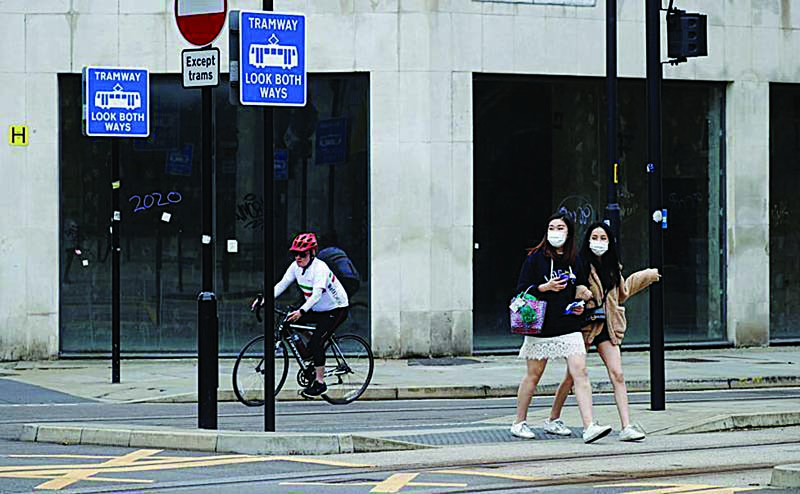
BRUSSELS/LONDON: Eurozone economic activity plunged in November, a key survey showed yesterday, due to a resurgence of lockdowns across Europe as the second wave of the coronavirus tightened its grip. "The eurozone economy has plunged back into a severe decline in November amid renewed efforts to quash the rising tide of COVID-19 infections," said Chris Williamson, chief economist at IHS Markit.
The firm's closely watched PMI index plummeted to 45.1 points from 50.0 points in October, well below the key 50-point level which indicates growth. IHS Markit said this offered a clear indication that the economy in the 19-member single currency area would stumble back into recession in the fourth quarter, erasing any gains seen over the middle of the year.
Importantly, "the further downturn of the economy… represents a major set-back to the region's health and extends the recovery period," Williamson said. All was not bleak, with survey results demonstrating emerging optimism for a better recovery next year on the back of signs effective vaccines were close at hand.
Still, IHS Markit said it forecast the eurozone economy would contract by a historic 7.4 percent in 2020 and expected a recovery of just 3.7 percent in 2021. IHS Markit said the downturn in November was broad but would hit the service sectors the hardest, especially those most constrained by the partial lockdowns. France, the bloc's second-biggest economy, was particularly hard-hit with a result of just 39.9 points on the PMI, indicating a very deep downturn.
The eurozone's number one economy, Germany, managed to show expansion in the period, probably buoyed by factory exports to Asia and a relatively lower rate of coronavirus infections. Meanwhile, British business activity has contracted in November as a new wave of coronavirus restrictions hammered the huge services industry, but news of possible vaccines has sharply boosted hopes for 2021, a survey showed yesterday. An early "flash" reading of the IHS Markit/CIPS UK Composite Purchasing Managers' Index (PMI), a gauge of private sector growth, tumbled to a five-month low of 47.4 in November from 52.1 in October.
It is the first time the index has gone below the 50.0 growth threshold level since June. The decline was smaller than a slump to 42.5 forecast in a Reuters poll of economists, however, and less severe than the drop in the eurozone. The forward-looking component of the PMI hit its highest in more than five years, boosted by progress on COVID-19 vaccines.
Bank of England Chief Economist Andy Haldane said yesterday he hoped the economy would be "turning a leaf" next year, but warned that some long-term damage was inevitable. Britain's economy is widely expected to contract in the fourth quarter - albeit by less than it did around the time of the first coronavirus lockdown - after Prime Minister Boris Johnson ordered a four-week lockdown for England.
Other parts of the United Kingdom have also imposed restrictions on businesses, including in hospitality and other face-to-face activities. Those closures helped to push the services PMI to 45.8 from 51.4 in October. But manufacturing, which was largely unaffected by the latest lockdown, accelerated, with its PMI rising to 55.2, the joint-highest level since 2018.
"The two-speed nature of the recovery is increasingly clear," J P Morgan Asset Management strategist Hugh Gimber said. "The manufacturing sector continues to tick along at a healthy pace, while new lockdowns have slammed the brakes on the nascent recovery in the service sector."
The approach of a possible trade shock at the end of next month, when Britain's post-Brexit transition deal with the European Union will expire, prompted clients of British factories to increase their orders to build up stocks. That in turn lead to a sharp lengthening of supplier delivery times because of severe delays at British ports.
Job losses across the private sector accelerated, although some of the reduction in employment was due to companies taking advantage of the government's extended jobs protection scheme. Separate figures yesterday showed the number of people visiting shops in Britain last week was 55 percent lower than a year earlier. - Agencies









